Blang, which is a minority group with a long history, mainly lives in some areas of Xishuangbanna, Lincang and Simao, Southwest China's Yunnan Province.
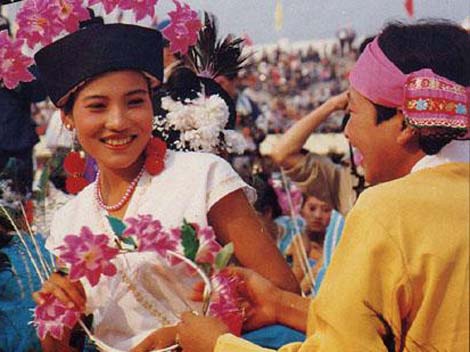
There are several taboos in Blang people's life. A pedestrian must avoid brushing against others in the street and striding over the legs of a person who is sitting. It is forbidden for a person to lean against or fasten a horse to a middle pole in the courtyard. People must take off their shoes before entering a Buddhist temple and are forbidden to smoke and touch the shoulders and the top of the head of the Buddha or Buddhist monks in the temple.
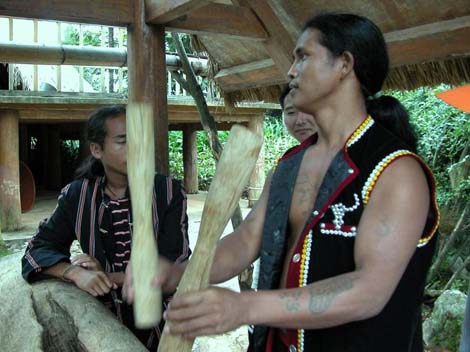
Courtship
Blang men and women are very free in their love and marriage, and are usually supported by their families and relatives. Men often visit women in groups or alone at night. As the moon rises, a group of lads, wearing their new clothes and holding their string instruments, go to the bamboo building where the young women live in. After dressing and grooming themselves, the women will light the fire and open the door to welcome the lads as early as possible. By saying humorous words and singing beautiful songs, the lads try to attract a woman. The women show their affections to their sweethearts by responding with singing and offering cigarettes and tea.
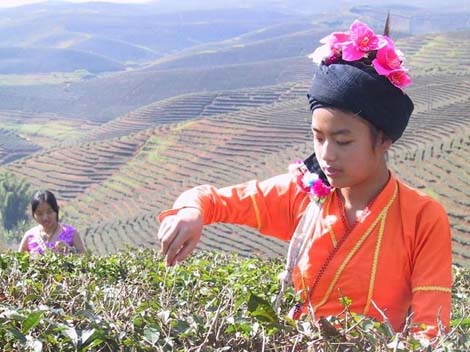
Flowers–Lovers' Matchmaker
In some areas of the Blang ethnic group, after being in love for a period of time, the man will propose to the woman by sending her flowers. For the first several times, the woman will accept the flowers, which the man picked up on the hill, but she'll give him no reply, with the purpose of confirming his affection to her. If the man keeps on sending her flowers, she will begin to trust him and then wear the most beautiful one on her head, meaning that she has accepted the man. Then the man will tell his parents about his earning her approval. They then send a matchmaker with a pack of tea and cigarettes to the woman's home and propose marriage. Usually her parents will approve the marriage.
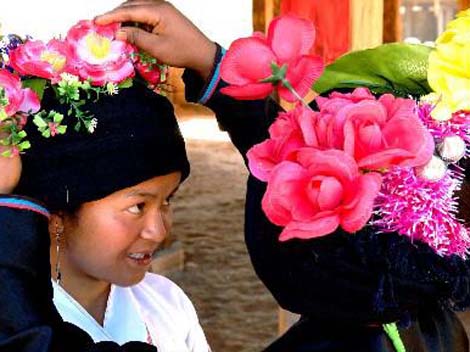
Two or Three Wedding Ceremonies
The wedding ceremony is distinctive as it is held two or three times. The first one is held after their engagement. The bride is taken to the groom's home to hold the string-tying ceremony. Then the couple return to their own homes separately. The bride won't be accepted as the daughter-in-law until the second ceremony is held. And at the third ceremony the groom treats the villagers, which is usually held after their baby is born.
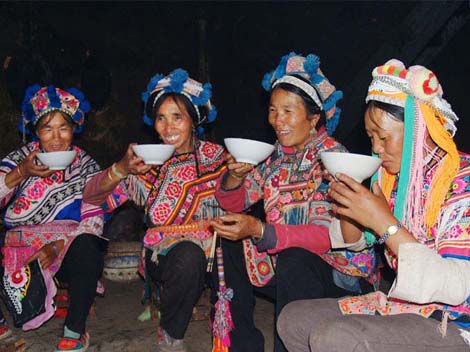
First Three Years after Marriage
There is a traditional custom that the man lives in his father-in-law's home with his wife at night and returns to his own parents' home to work at daytime for three years after marriage. And three years later, the woman moves to her husband's family on an auspicious day.





